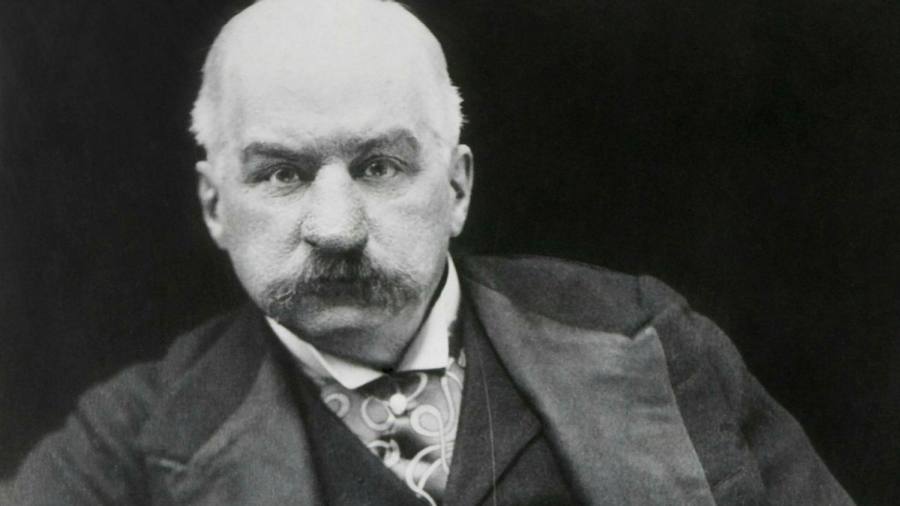
The writer, a fellow at Stanford’s Hoover Institution, is the author of ‘Asia’s New Geopolitics’
In October 1907, as America’s banking system seemed about to collapse, New York financier JP Morgan stepped in to save the country’s economy. A failed attempt to corner the copper market had started a run on a key trust company and soon spread panic to Wall Street.
Working out of his Manhattan brownstone, Morgan corralled other bank and trust presidents, at one point locking them in his library, and worked with US government officials to raise tens of millions of dollars over the next three weeks to stabilise banks and the New York Stock Exchange. Without this concerted action, the damage to the US economy might have been catastrophic.
Historical analogies are tricky at the best of times, but there is a contemporary lesson in Morgan’s leadership. Today, the US faces as dangerous a crisis as the panic of 1907, albeit one moving more slowly.
If nothing changes, America is poised to lose the race for 5G telecommunications technology to China. Perhaps not since the emergence of the automobile has the US risked failing to be among the leaders in creating the world’s next great technology. Shortsighted decisions and the lack of private sector leadership are causing a crisis of confidence. Without a modern-day Morgan to take charge, a poor response to 5G may well permanently weaken the American economy.
The telecoms revolution that 5G promises has largely been misunderstood in the US. This isn’t just about faster streaming of movies and video games. Rather, the enhanced capacity will fundamentally change digital economic activity, leading to far greater efficiencies and innovation. When combined with more sophisticated artificial intelligence programmes, 5G could revolutionise medicine, manufacturing, finance, commerce and basic science.
Yet there are no US 5G companies. The field is dominated by China’s Huawei, with Sweden’s Ericsson and Finland’s Nokia trailing behind. The Trump administration has so far found little interest among US tech companies and private-equity firms in investing in the sector. That’s probably because 5G’s hardware systems are not themselves major profit producers.
But that narrow perspective gets it backwards. As noted by David Goldman, author of You Will Be Assimilated, 5G technology today is the equivalent of American railroads in the 19th-century. Building a national rail network led to a vast expansion of farms and factories, moving goods and people — and by extension, ideas — across the continent, unleashing undreamt of productivity advances. Properly used, 5G will do the same, which is why it threatens to upend the global economy. If Huawei dominates the world’s 5G systems, it will set digital standards for decades and put Chinese companies in pole position in fintech, telemedicine, manufacturing and autonomous systems.
Donald Trump’s administration understands the stakes, which is why it barred Huawei from US 5G systems and is pushing software-based alternatives such as “open radio access networks” to get around China’s hardware lead. Australia, Japan and now the UK have joined Washington’s ban on Huawei. So far, these governments are focused on data security and privacy, but they should also be worried about economic subordination.
Huawei’s lead over the west is growing, and time is short to develop a credible alternative. Hence the need for a modern JP Morgan. The US government should not be the primary funder or producer of the country’s 5G network, let alone its owner. Private business must put aside short-term profit considerations and commit to a comprehensive hardware and software solution.
Someone from America’s business elite needs to step into Morgan’s shoes. It could be Cisco Systems or Intel redirecting corporate strategy, or investors such as Peter Thiel or Warren Buffett using their fortunes to create industry-defining 5G technology. The required outlays may dampen quarterly earnings for some years, but they will eventually pay off as domestic 5G networks revitalise and refit the economy, and are sold to other countries. The alternatives — lagging behind or depending on Chinese technology — are unthinkable.
At one point during the 1907 crisis, New York City was days away from bankruptcy. Morgan personally underwrote $30m in bonds to keep the city solvent. He was criticised later for creating a dominant “money trust”, but Morgan’s actions throughout October and November probably prevented a catastrophic failure. Without a similar act of self-interested patriotism, this may well be the last decade of America’s global ascendancy.
The Link LonkAugust 06, 2020 at 04:00PM
https://ift.tt/3a0VLh9
The US needs a new JPMorgan to lead the fight against Huawei - Financial Times
https://ift.tt/3eIwkCL
Huawei
No comments:
Post a Comment